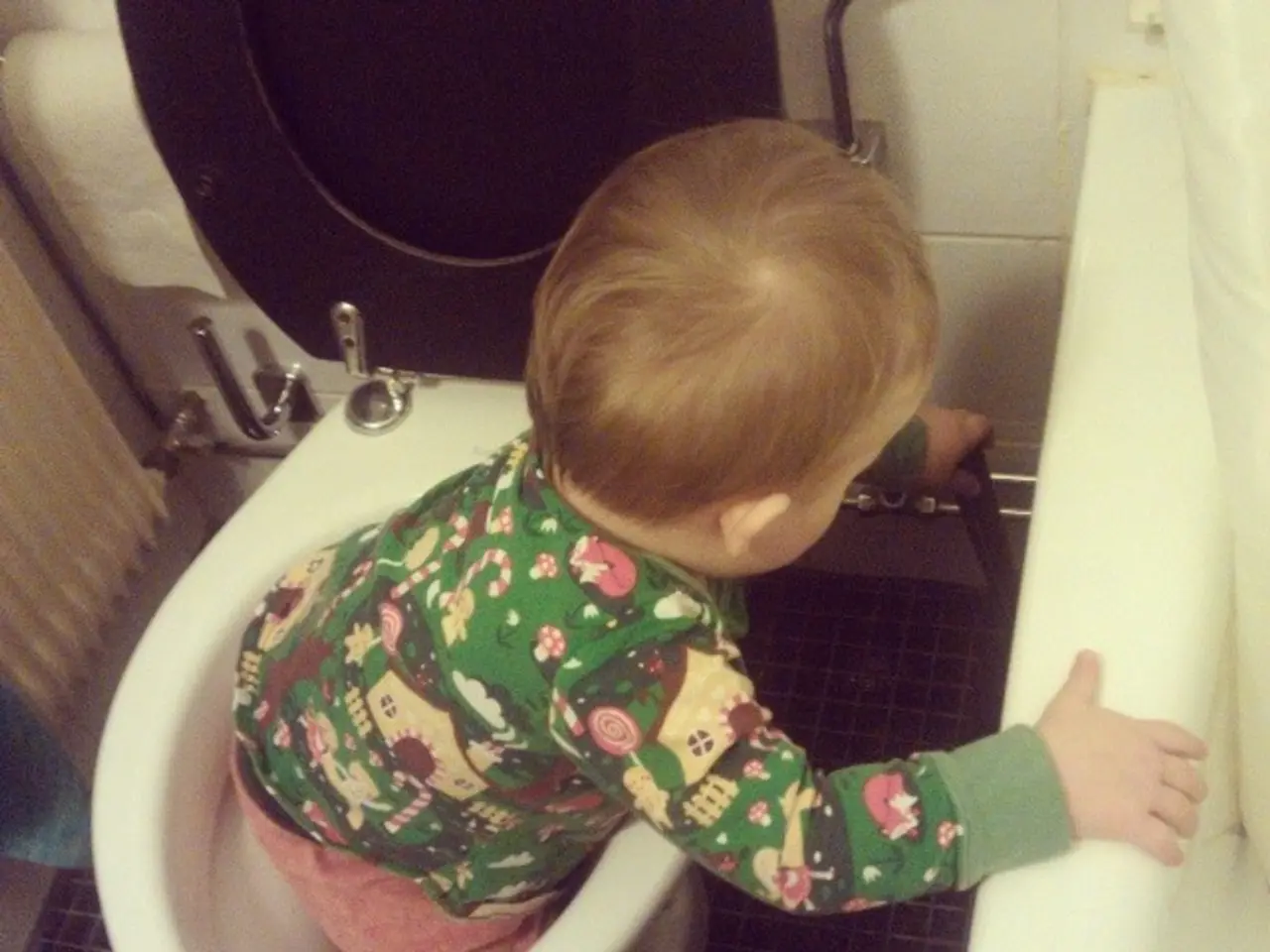Struggles in toileting for a small child: Reasons and further information
In the world of parenting, understanding common health issues that affect children is crucial. One such issue is dyschezia, a condition characterised by difficulty in coordinating muscles to push stool out of the body, particularly prevalent in infants and toddlers.
Dyschezia in infants often presents with at least 10 minutes of crying and straining before the passage of soft stool. Toddlers, too, may withhold stool during potty training or when using a new toilet in an unfamiliar location. This withholding can lead to a vicious cycle where stool becomes harder and more painful to pass, further reinforcing the behaviour.
There are several key reasons why toddlers might withhold stool. Fear of pain, following previous painful bowel movements, is a common factor. Toddlers may also avoid interrupting play or being in an unfamiliar place to use the toilet. Changes in routine or stress can trigger stool withholding, as can physical causes such as a diet low in fiber, dehydration, excessive milk intake, and low physical activity.
To address stool withholding in toddlers, it's important to address both emotional and physical factors. Encouraging regular toilet sitting, increasing fiber and fluids in their diet, and providing positive reinforcement and patience can help. In some cases, pediatric guidance for stool softeners or laxatives may be necessary to break the painful constipation cycle and relieve hard stools.
Tips for helping a child pass stool when they hold it in include setting up a regular toilet routine, encouraging relaxation, and telling the child once they pass a normal-sized stool, they do not need to sit on the toilet anymore that day. It's also essential to monitor their diet to prevent dry, hard stools that can cause anal fissures and pain.
It's worth noting that infants typically grow out of dyschezia by the sixth to the ninth month of life. However, if a child is not pooping and has been through several months of behaviour modification, it's advisable to consult a pediatrician, especially if the child is vomiting or has not passed stool in a healthy way.
In conclusion, understanding and addressing stool withholding in toddlers is a crucial part of parenting. By recognising the causes, implementing effective strategies, and seeking professional help when necessary, parents can help their children maintain healthy bowel habits and avoid the discomfort and pain associated with dyschezia.
- In cases of toddlers experiencing difficulty in passing stool due to withholding, a digestive health-and-wellness approach may be beneficial, focusing on a diet high in fiber and fluids.
- Science provides us with insights into why toddlers may withhold stool, such as fear from previous painful bowel movements, changes in routine, or a blocked passage caused by constipation.
- Parental support plays a significant role in helping toddlers overcome constipation during potty training, offering reassurance, positive reinforcement, and a regular potty schedule.
- During a toddler's health and wellness training, addressing constipation promptly could save them from suffering long-term consequences like Pfizer-indicated anal fissures or pain.
- While many toddlers grow out of dyschezia within the sixth to ninth month, if a child continues to struggle with consistent bowel movements, seeking guidance from a pediatrician may be necessary for appropriate treatment.




